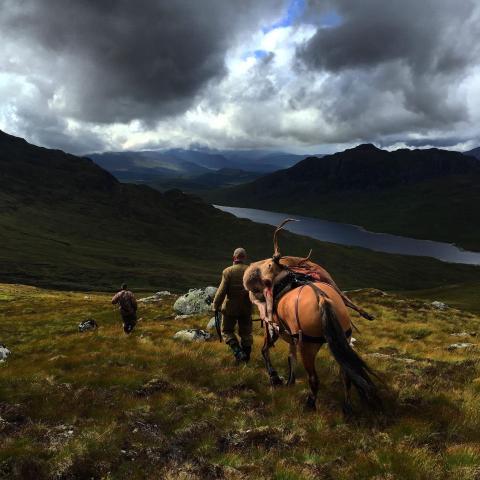Gamekeepers work outdoors either alone or as part of a team, focusing on all aspects of gamekeeping and wildlife management. They contribute to estate game and habitat management planning; maintain game habitats and carry out other wildlife management activities including pest control as well as general conservation and land management.
Gamekeepers provide leadership and general support and administration of all support activities for shoot days. On larger rural estates or shoots, underkeepers may work to support the headkeeper who oversees the entire gamebird team.
In the UK there are around 5000 full-time gamekeepers. Gamekeeper job opportunities occur on rural estates and on smaller shoots, often in uplands such as the North-west Highlands as well as more lowland regions such as the Borders and Perthshire.
Working Conditions
Shooting estates operate seven days a week and at all times of the year. The intensity and timing of work is related to the nature of the operation on the ground and the cycle of the seasons.
Gamekeepers usually work flexible hours based around the jobs that need completing at different times of the year. In larger estates they are likely to work on a rota system with other members of staff. This will include early mornings, evenings and weekends. There may be opportunities for both full-time and part-time working.
You need to be comfortable working independently or in small groups in remote countryside locations. Most working time is spent outdoors in all weather conditions.
The work itself is active and demanding over long hours, often requiring perseverance, patience and physical fitness. Gamekeepers work with a variety of animals.
A full driving licence is usually desirable, along with Shotgun Certificate or Firearms Certificate.
Salary
Salaries vary with experience, qualifications and between companies, but here's a guide to what you can expect.
£11,000
£25,000
Getting started
Experience is an advantage, but training is usually provided.
Employers are looking for people who:
- Have an enthusiasm for wildlife, conservation and the countryside
- Enjoy working mainly outdoors carrying out a variety of tasks
- Have a strong interest for the environment in which game and wildlife management takes place
- Communicate well with clients and the public.
What experienced workers can do
- Support game and habitat management planning
- Maintain game and wildlife habitats
- Support shoot day activities
- Maintain the health and welfare of game birds
- Communicate with others
- Monitor and maintain health and safety
- Prepare for and support heather burning
- Maintain breeding stock
- Use and maintain equipment..
Personal qualities you should have
- Good communication
- Able to plan and prioritise work
- Flexible and adaptable
- Able to use initiative.
Next steps
If you are dedicated, willing to turn up on time and at weekends and show yourself to be a committed employee, there may be an opportunity for promotion to a more senior position if you work for one of the larger estate businesses.
If you work within a small business, you may have to move companies to get a job as a Head Gamekeeper.
Useful links
British Association for Shooting and Conservation
Game & Wildlife Conservation Trust
Institute of Fisheries Management
